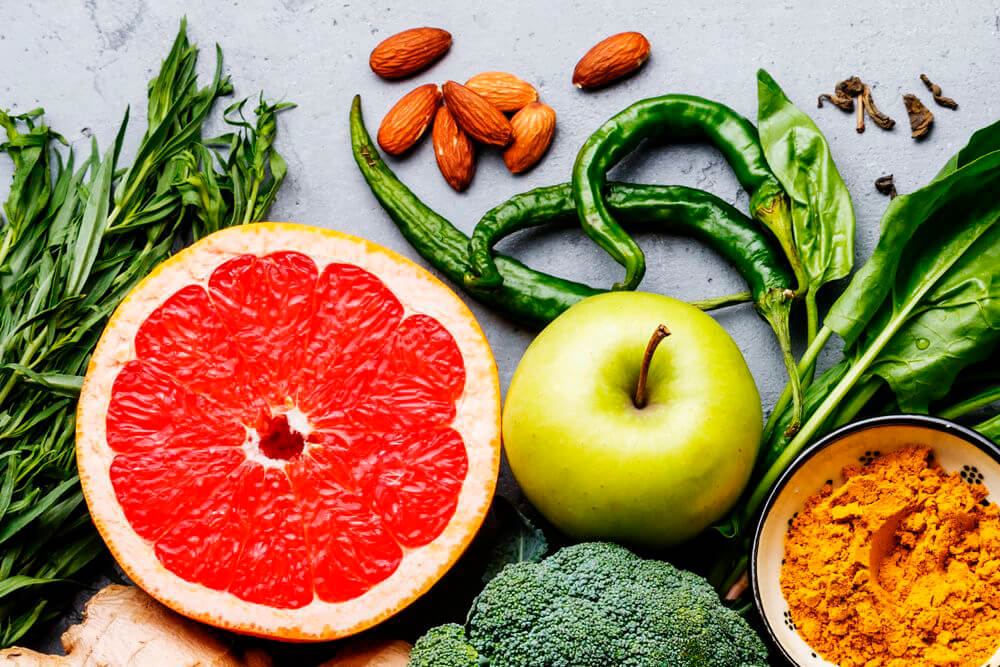Plant-Based Diet: A Detailed Beginner's Guide
05 Aug 2019 por Ted Escobedo
5 minuto de lectura
There are many diet options. While some emphasize all protein and good fat, others tout intermittent fasting as the way to a healthier life. Still other health experts believe that diets emphasizing fresh, whole ingredients and minimizing processed foods are superior for overall wellness. The whole-foods, plant-based diet does just that.
Today, we will learn a little about plant-based diets.
A whole food, plant-based diet:
- Emphasizes whole, minimally processed foods.
- Limits or avoids animal products. (but are not necessarily off limits as in vegan diets)
- Focuses on plants, vegetables, fruits, whole grains, legumes, seeds and nuts, which should make up the majority of the diet.
- Excludes refined foods, like added sugars, white flour and processed oils.
- Pays special attention to food quality, with many proponents of the WFPB diet promoting locally sourced, organic food whenever possible.
It focuses on minimally processed foods, specifically plants, and is effective at stimulating weight loss and improving health.
This article reviews everything you need to know about the whole-foods, plant-based diet, including its potential health benefits, foods to eat and a sample
What Is a Whole-Foods, Plant-Based Diet?
There is no clear definition of a what constitutes a whole-foods,
plant-based diet (WFPB diet). The WFPB diet is not necessarily a set
diet — it’s more of a lifestyle.
This is because plant-based
diets can vary greatly depending on the extent to which a person
includes animal products in their diet.
Nonetheless, the basic principles of a whole-foods, plant-based diet are as follows:
- Emphasizes whole, minimally processed foods.
- Limits or avoids animal products.
- Focuses
on plants, including vegetables, fruits, whole grains, legumes,
seeds and nuts, which should make up the majority of what you eat.
- Excludes refined foods, like added sugars, white flour and processed oils.
- Pays
special attention to food quality, with many proponents of the
WFPB diet promoting locally sourced, organic food whenever
possible.
Many studies have shown that plant-based diets are beneficial for weight loss.
The
high fiber content of the WFPB diet, along with the exclusion of
processed foods, is a winning combination for shedding excess pounds.
A
review of 12 studies that included more than 1,100 people found that
those assigned to plant-based diets lost significantly more weight —
about 4.5 pounds over an average of 18 weeks — than those assigned to
non-vegetarian diets.
Adopting a healthy plant-based eating pattern may also help maintain the weight loss in the long run.
A
study in 65 overweight and obese adults found that those assigned to a
WFPB diet lost significantly more weight than the control group and were
able to sustain that weight loss of 9.25 pounds) over a one-year
follow-up period.
Plus, simply cutting out the processed foods
that aren’t allowed on a WFPB diet like soda, candy, fast food and
refined grains is a powerful weight loss tool .
It Benefits a Number of Health Conditions
Adopting
a whole-foods, plant-based diet not only benefits your waistline, but
it can also lower your risk and reduce symptoms of certain chronic
diseases.
- Heart Disease.
- Cancer
- Cognitive Decline
- Diabetes
Okay then, what does a typical day on the whole foods, plant-based diet look like?

